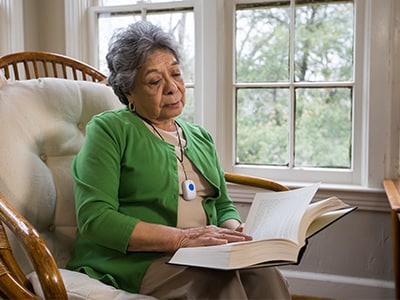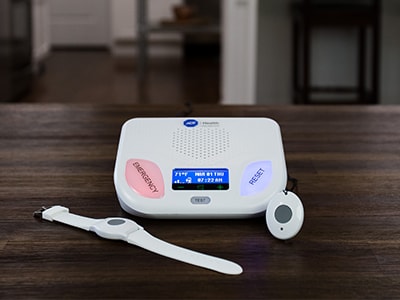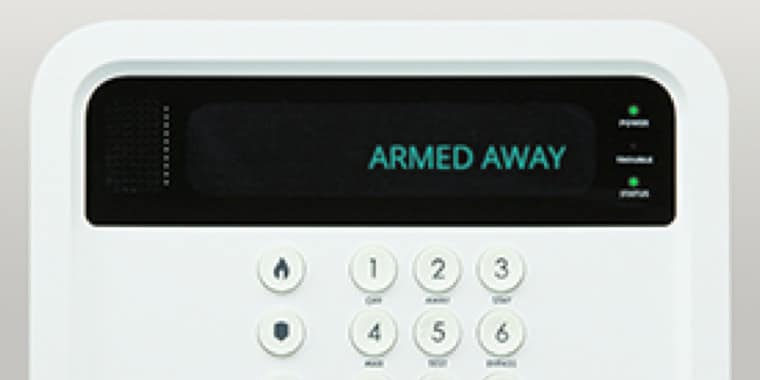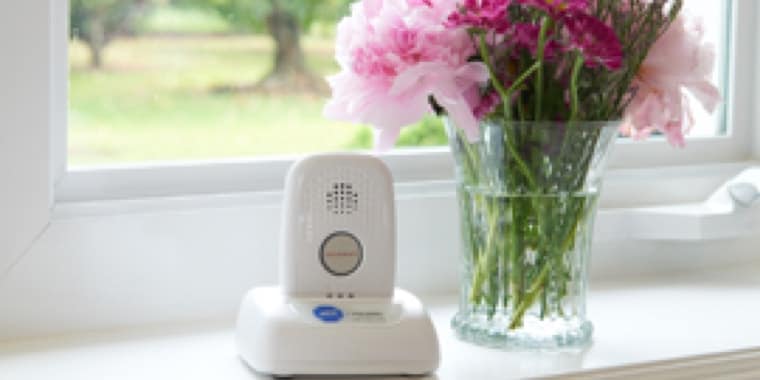It's 10 p.m., do you know where your parents are? As parents begin to age and adult children begin to take on more active roles in their aging parents' lives, it can be difficult to remain informed about their quality of life. According to Pew Research Center, there are 40.4 million unpaid caregivers of adults ages 65 and older in the United States, and, of those adults receiving care, 44 percent are aging parents.1
If you're caring for elderly parents, these elderly care tips can help make your caregiver role a bit easier.
1. Determine the Care Level
A Pew Research Center study found that 61 percent of adults aged 65 and older would choose to age in their own home. This can make it difficult for adult children to know when their aging parent may begin to need assistance.2 If your aging parents live far away, it can be especially difficult to know if your parent is at the point where you need to step in.
If your parents choose to remain in their own home, or if they move in with you, technology has developed a plethora of options to make monitoring and caregiving as stress-free and secure as possible. Whether you check in on your parents via frequent home visits or wireless monitoring systems, you'll feel at ease knowing that they are safe.
The AARP recommends that those caring for elderly parents complete an assessment; adult children may choose to complete the caregiving assessment on their own or with the assistance of a trained medical professional. According to the AARP, "assessments should include a thorough review of your loved one's physical and mental health; medication use; daily routine; home and community safety; support system; appearance and hygiene; finances and personal interests."3 You can determine how much care is needed once you've completed an assessment of their living situation and overall health.
2. Share the Responsibility
One of the most important elderly care tips is to make caregiving a team effort. Unless your siblings or extended family members live far away, there's no reason you have to be the sole caregiver for your aging parents. Enlist the help of your spouse or your children—spread the responsibility among multiple people to reduce the stresses of elder care.
3. Technology Helps Your Peace of Mind
If you live nearby, caring for elderly parents can be as easy as frequently stopping by their home to make sure that they're doing well. If you live far away from each other, however, monitoring aging parents can be extremely difficult, if not impossible. Phone calls don't always give a comprehensive picture of how your parents are doing. Luckily, video monitoring has enabled adult children to easily check in on their parents, wherever they may be.
With over half of aging adults choosing to remain in their home, video monitoring is an excellent way for adult children to check in on their parents and can be fun for both of you! Video monitoring can also be used by adult children to assess their elderly parents' quality of life, as the video feed can give a real-time depiction of their daily routine. However, video monitoring should never be done without your parents' consent.
4. Use sensor monitors to track daily activities
If your parents aren't comfortable with being recorded on camera, a sensor monitor may be the solution. Some sensor monitoring systems are designed to alert you when movement is detected in specific areas of the house.
Other systems feature even more sensitive sensor monitoring for smaller, everyday functions. Strategically placed motion sensors can alert you when your parent lifts their pill box or when they open the refrigerator door. For those monitoring medication dosing for aging parents, a small sensor monitor can alleviate the need for phone calls throughout the day.
5. Invest in medical alert systems
Perhaps your aging parents don't want to be monitored at all, but you want to know that help will be there when they need it. In this case, you still have the option of on-demand services, such as ADT's Medical Alert Safety System.
Choosing either a bracelet or pendant, both you and your elderly parent can know that help is available at the touch of a button. The bracelet and pendant are also waterproof, allowing your parent to wear it when taking a bath or shower.
Related Articles
1.Stepler, Renee."5 Facts about Family Caregivers." Pew Research Center. November 18, 2015. Accessed May 22, 2018. http://www.pewresearch.org/fact-tank/2015/11/18/5-facts-about-family-caregivers/.
2. Ymartinez. "Most Older Adults Want to Age in Place." Pew Research Center's Social & Demographic Trends Project. February 16, 2016. Accessed May 24, 2018. http://www.pewsocialtrends.org/2016/02/18/smaller-share-of-women-ages-65-and-older-are-living-alone/st_2016-02-18_older-adult_0-02/.
3. "How a Caregiver Can Assess a Loved One's Situation." AARP. Accessed May 22, 2018. https://www.aarp.org/caregiving/basics/info-2017/assessment.html?intcmp=AE-CAR-BAS-BB-LL3.








